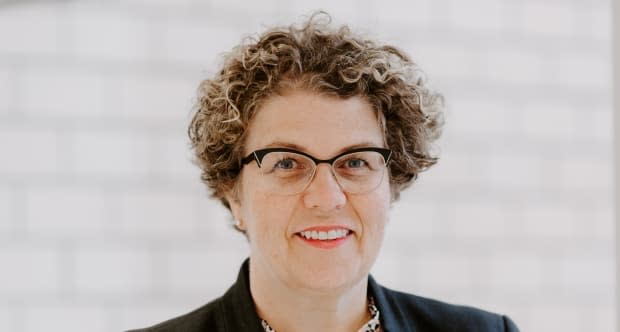Protecting seniors from COVID-19 came at the cost of mental health, study says

Public health officials were so concerned about protecting seniors from COVID-19 that they forgot about their mental well being, says the author of a study on the long-term effects of the pandemic.
"We did it for so long that it actually had a negative effect — not only on residents, but I would assume on staff as well. And of course, on families that were in our study," said Suzanne Dupuis-Blanchard, a professor and research chair in population aging at the Université de Moncton.
She said the restrictions were so focused on the physical health of seniors, "we forgot about the impact of social isolation and what it meant."
And what it meant was more anxiety, depression, counselling and medication.
As the lockdown dragged, Dupuis-Blanchard knew that seniors would be greatly impacted by the social isolation. Her research study wanted to document the short-term and longer-term effects on seniors and their family members.
Her first round of interviews were conducted in May, while participants were still on lockdown in long-term care homes, unable to see family members.

Those interviews revealed families who hadn't seen each other in months. Some had managed window visits, while others had used technology to set up video calls.
Dupuis-Blanchard said families found those to be poor substitutes for in-person visits and physical contact.
Family members on the outside were concerned for their loved ones — and feeling guilty, in many cases, about not being able to pitch in to help, she said.
They were heartbreaking stories, said Dupuis-Blanchard.
But the second round of interviews — conducted in December after various restrictions were loosened — were so much more difficult.
Dupuis-Blanchard said they were some of the most difficult she's ever done. She said they were "very, very emotional and very, very poignant."
Although appreciative of the efforts to protect their loved one from COVID-19, most families said there was too high a price paid in emotional well-being.
Finding the proper balance
The goal of the research project is to document the lessons learned so that improvements can be made for a similar health crisis in the future.
Dupuis-Blanchard said it's now absolutely clear to her that contact between residents and family members has to be maintained as much as possible.
"We have to find better ways to integrate families … even when in pandemic. There has to be a balance between protection at all costs versus a bit of risk for the benefit of the health of families and residents," she said.
She said officials have to realize the vital role that families play in long-term care.
"I honestly think that we have to find better ways to balance that out in long-term care — to be able to let families come in to be that care partner that we know that they are."
Dupuis-Blanchard said the study concluded that families are more than visitors in long-term care facilities.
"Isolating both families and residents from each other was meant as a protective measure but it has had a detrimental impact on mental health of family members."
Between the first and second interviews
During the first round of interviews in May, Dupuis-Blanchard said participants were worried about the pandemic but hopeful that the summer would bring better days.
"The attitude was more of, 'Yes, we're concerned. We're happy with what's being done and it will pass. It will get better.'"
But then things dragged on, and by December, some parts of the province were back in orange and facing added restrictions for the holidays and a predicted second wave.
But there were positives in December — outside visits were permitted, designated care persons were allowed in, and people were already starting to get vaccinated.
The loosened restrictions, however, didn't always deliver the satisfaction that families were anticipating.
Individual facilities were able to decide how best to adapt to changing public health restrictions and they varied widely between facilities. Dupuis-Blanchard said those inconsistencies "created a lot of frustration."
She said families were struggling psychologically; there was "a lot of anxiety, depression to the point of being in counselling and being on medication. And they are finding this very, very difficult."
Not surprised
The executive director of the Coalition for Seniors and Nursing Home Residents' Rights isn't surprised that seniors and family members reported more stress and anxiety during the second round of interviews.
"This has been a long, long journey … for the seniors and for the families," said Cecile Cassista. "The ones that I've spoken to ... they're so discouraged, they've just given up."
She said the social isolation that became necessary to protect them from the spread of COVID-19 is "taking a huge toll" on the residents.
She said he got a call from someone last week, concerned about the deteriorating condition of her father.

"'He doesn't understand what's going on. I see him through the window and I could see that he's deteriorating. He's given up.' It's taken a huge toll on them, because they don't understand," said Cassista. "They're shut out from everything."
Like Dupuis-Blanchard, Cassista believes that family members should be part of the solution.
"I really think that they need to relax the rules so that that a family member or two can continue to be able to visit their loved ones."
She said volunteers "play a huge role" in long-term care facilities and officials should try to find a compromise that would allow them to help with the care of their family members.
"That alleviates pressure off the staff as well," she said.

